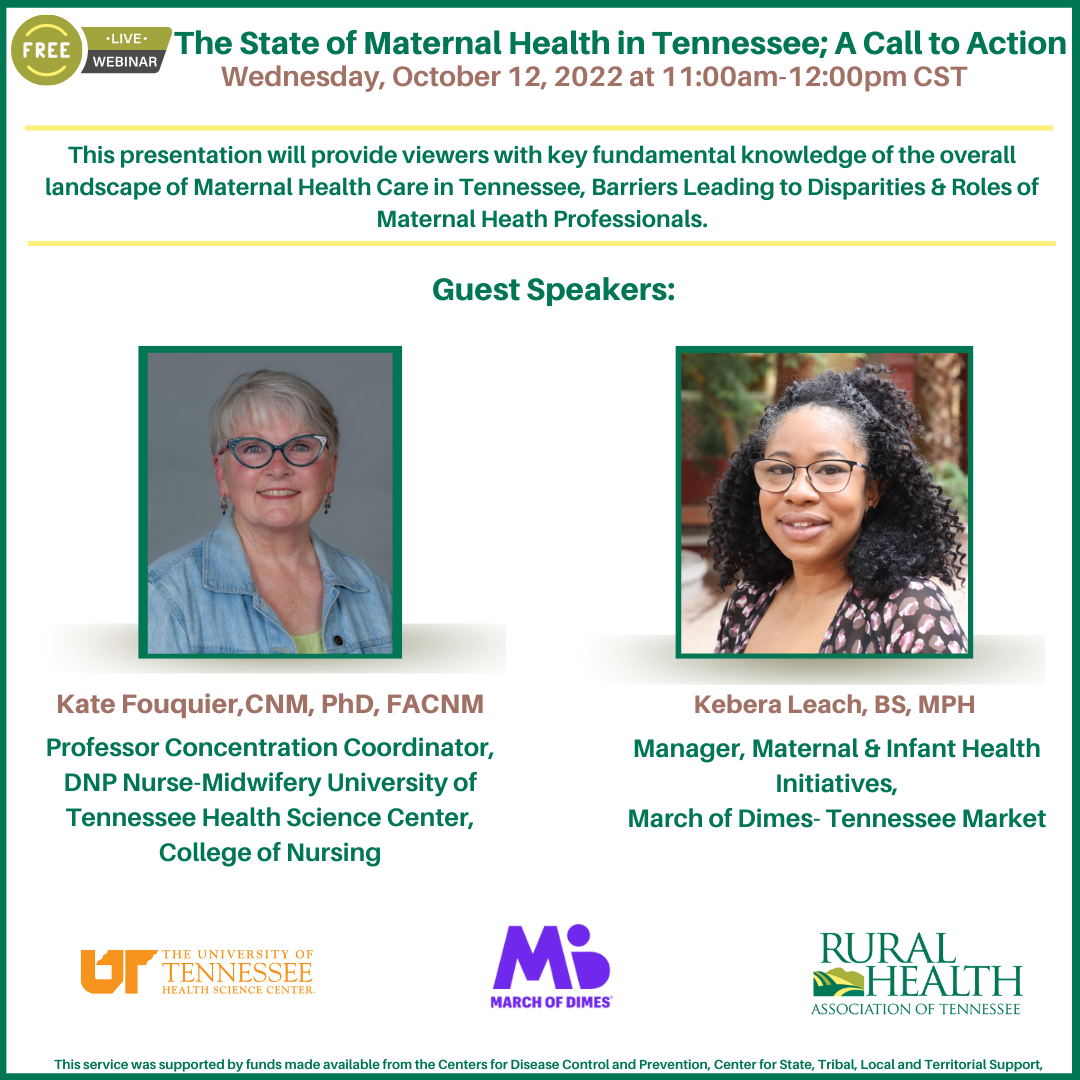Pre-Conference Tracks are Now Live!
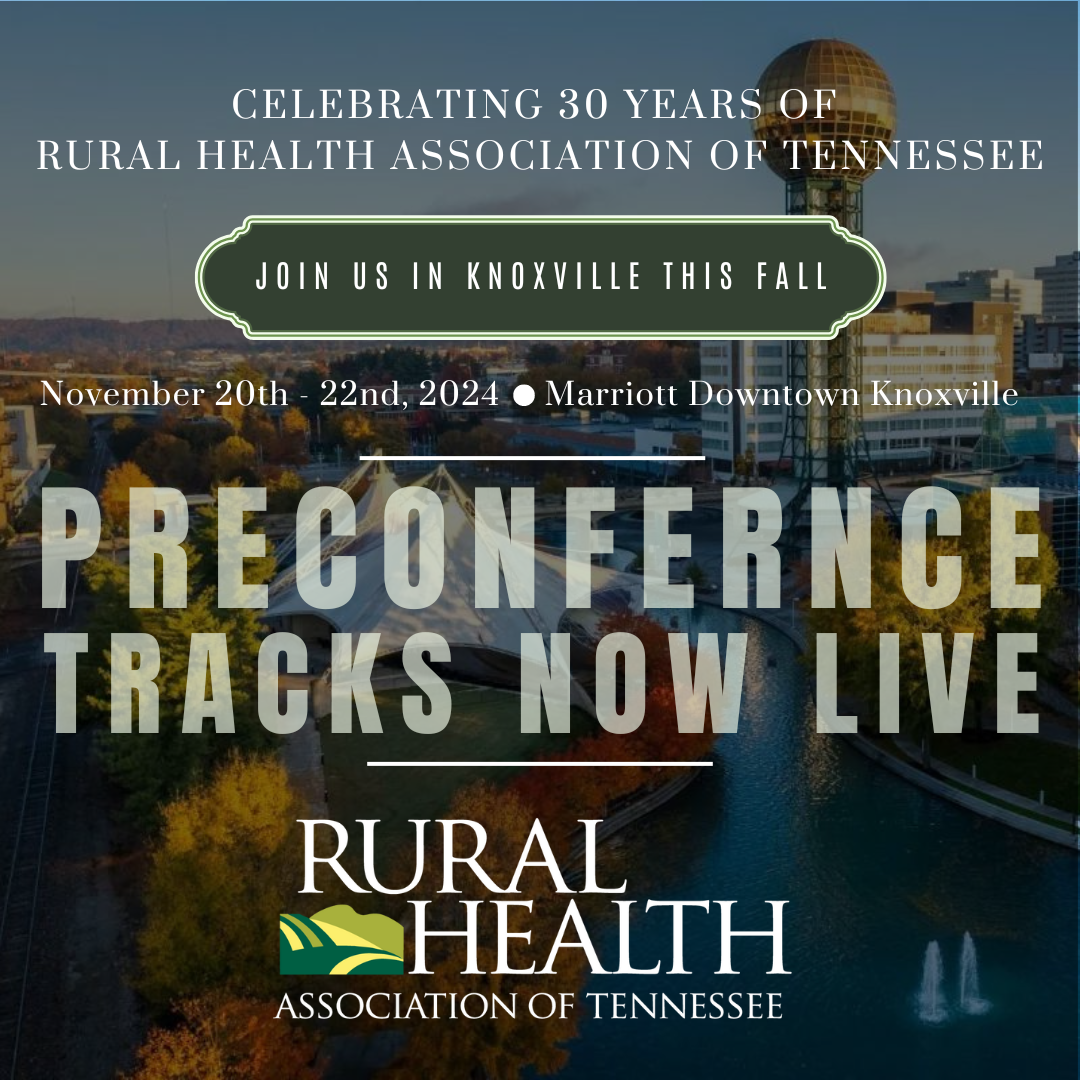 The 30th Annual Conference of the Rural Health Association of Tennessee is set to bring a dynamic range of educational opportunities to its members. This year, the Association introduces new tracks designed to address the evolving needs of rural healthcare. Attendees from rural hospitals, rural health clinics, school health programs, substance use disorder treatment, maternal health, and public health sectors will find dedicated sessions tailored to their fields. These sessions, taking place on the first morning of the conference from 8 AM to 11 AM, will provide an engaging platform for professionals to learn, collaborate, and advance strategies to improve healthcare in rural communities.
The 30th Annual Conference of the Rural Health Association of Tennessee is set to bring a dynamic range of educational opportunities to its members. This year, the Association introduces new tracks designed to address the evolving needs of rural healthcare. Attendees from rural hospitals, rural health clinics, school health programs, substance use disorder treatment, maternal health, and public health sectors will find dedicated sessions tailored to their fields. These sessions, taking place on the first morning of the conference from 8 AM to 11 AM, will provide an engaging platform for professionals to learn, collaborate, and advance strategies to improve healthcare in rural communities.


 The Rural Health Association of Tennessee is celebrating good news! We are elated to share that we have received
The Rural Health Association of Tennessee is celebrating good news! We are elated to share that we have received  Have you submitted your nominations for the 2024 Annual Rural Health Awards? Each y
Have you submitted your nominations for the 2024 Annual Rural Health Awards? Each y In July of 2021, Rural Health Association of Tennessee (RHA) received a “Notice of Award” from Tennessee Department of Health (TDH) about a funding opportunity to build strategies and best practices to reduce COVID-19 risk across the state of Tennessee in underserved and rural communities. The contract (GR-21-73441) totaling $2,468,000 was made possible by the Centers for Disease Control and Prevention (CDC).
In July of 2021, Rural Health Association of Tennessee (RHA) received a “Notice of Award” from Tennessee Department of Health (TDH) about a funding opportunity to build strategies and best practices to reduce COVID-19 risk across the state of Tennessee in underserved and rural communities. The contract (GR-21-73441) totaling $2,468,000 was made possible by the Centers for Disease Control and Prevention (CDC).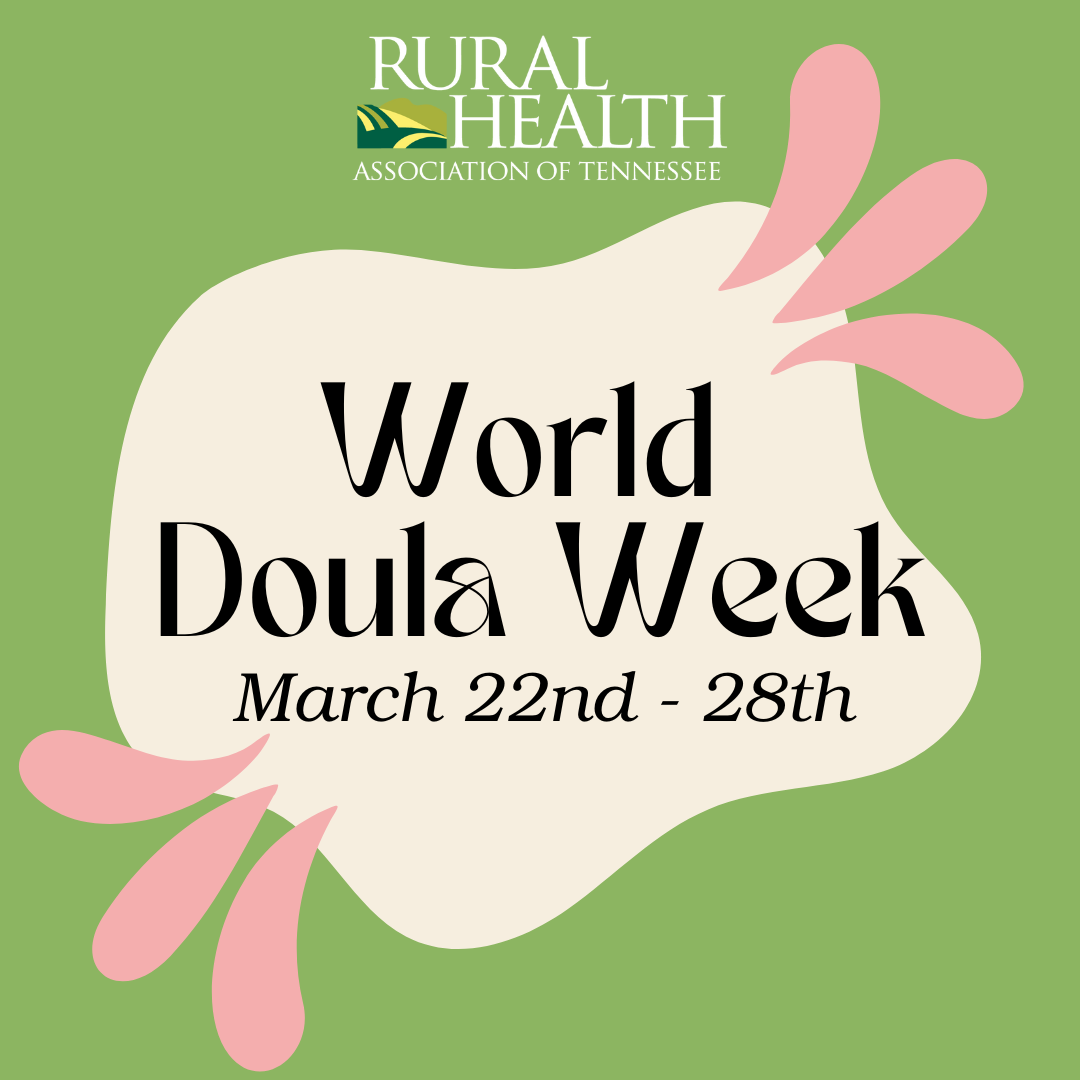 World Doula Week holds significant importance in raising awareness about the invaluable role of doulas in maternal and infant healthcare. Doulas, often referred to as birth companions or birth coaches, provide physical, emotional, and informational support to mothers before, during, and after childbirth. This week-long observance serves as a platform to highlight the vital contributions doulas make in promoting positive birth experiences, reducing medical interventions, and supporting the overall well-being of mothers and babies worldwide.
World Doula Week holds significant importance in raising awareness about the invaluable role of doulas in maternal and infant healthcare. Doulas, often referred to as birth companions or birth coaches, provide physical, emotional, and informational support to mothers before, during, and after childbirth. This week-long observance serves as a platform to highlight the vital contributions doulas make in promoting positive birth experiences, reducing medical interventions, and supporting the overall well-being of mothers and babies worldwide.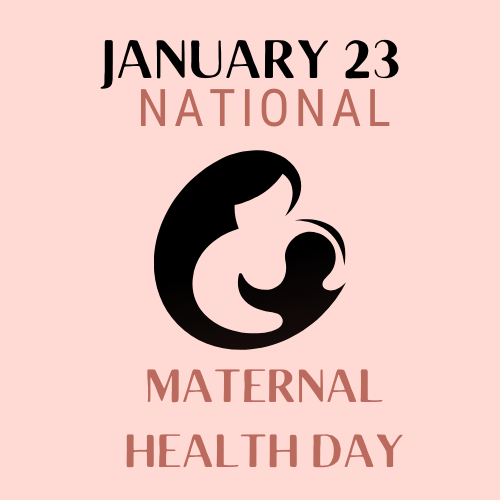 Maternal health is a critical aspect of overall well-being, and its significance is particularly pronounced in rural communities. In these areas, access to quality healthcare resources is often limited, posing unique challenges for pregnant women and new mothers. The lack of easily accessible healthcare facilities, skilled professionals, and educational programs can lead to delayed or inadequate prenatal care, increasing the risk of complications during pregnancy and childbirth. Addressing maternal health in rural communities is essential for ensuring the health and survival of both mothers and their newborns.
Maternal health is a critical aspect of overall well-being, and its significance is particularly pronounced in rural communities. In these areas, access to quality healthcare resources is often limited, posing unique challenges for pregnant women and new mothers. The lack of easily accessible healthcare facilities, skilled professionals, and educational programs can lead to delayed or inadequate prenatal care, increasing the risk of complications during pregnancy and childbirth. Addressing maternal health in rural communities is essential for ensuring the health and survival of both mothers and their newborns.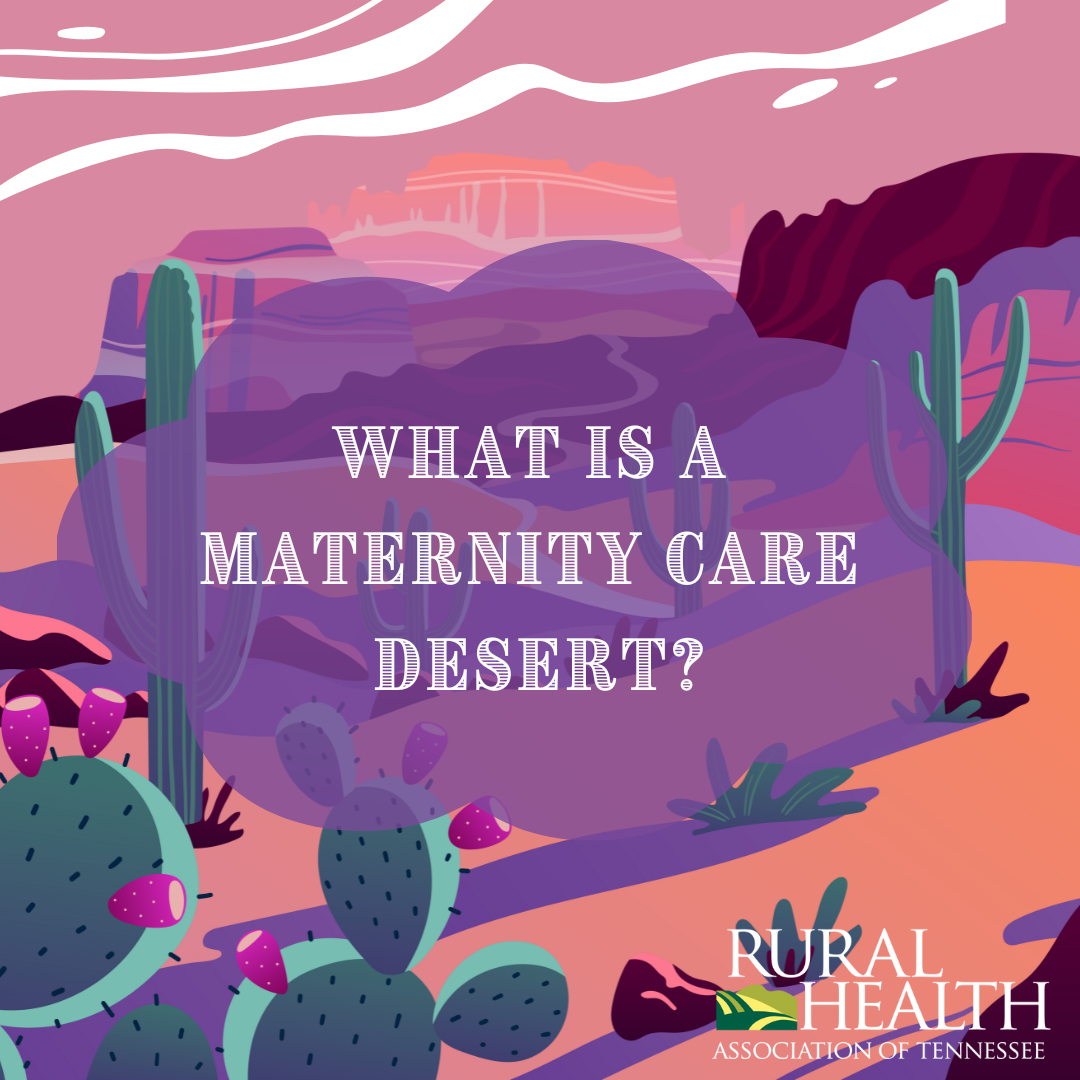 Maternity care deserts pose a significant challenge to rural Tennesseans, where access to comprehensive maternal healthcare services is often limited. In these areas, the shortage of obstetricians, gynecologists, and maternity care facilities creates what are essentially maternity care deserts. Pregnant individuals in rural Tennessee face increased difficulties in finding accessible and timely prenatal care, essential for monitoring the health of both mother and baby throughout pregnancy. The absence of nearby obstetric care providers in these deserts contributes to delayed or inadequate medical attention, leading to potential complications during pregnancy and childbirth.
Maternity care deserts pose a significant challenge to rural Tennesseans, where access to comprehensive maternal healthcare services is often limited. In these areas, the shortage of obstetricians, gynecologists, and maternity care facilities creates what are essentially maternity care deserts. Pregnant individuals in rural Tennessee face increased difficulties in finding accessible and timely prenatal care, essential for monitoring the health of both mother and baby throughout pregnancy. The absence of nearby obstetric care providers in these deserts contributes to delayed or inadequate medical attention, leading to potential complications during pregnancy and childbirth.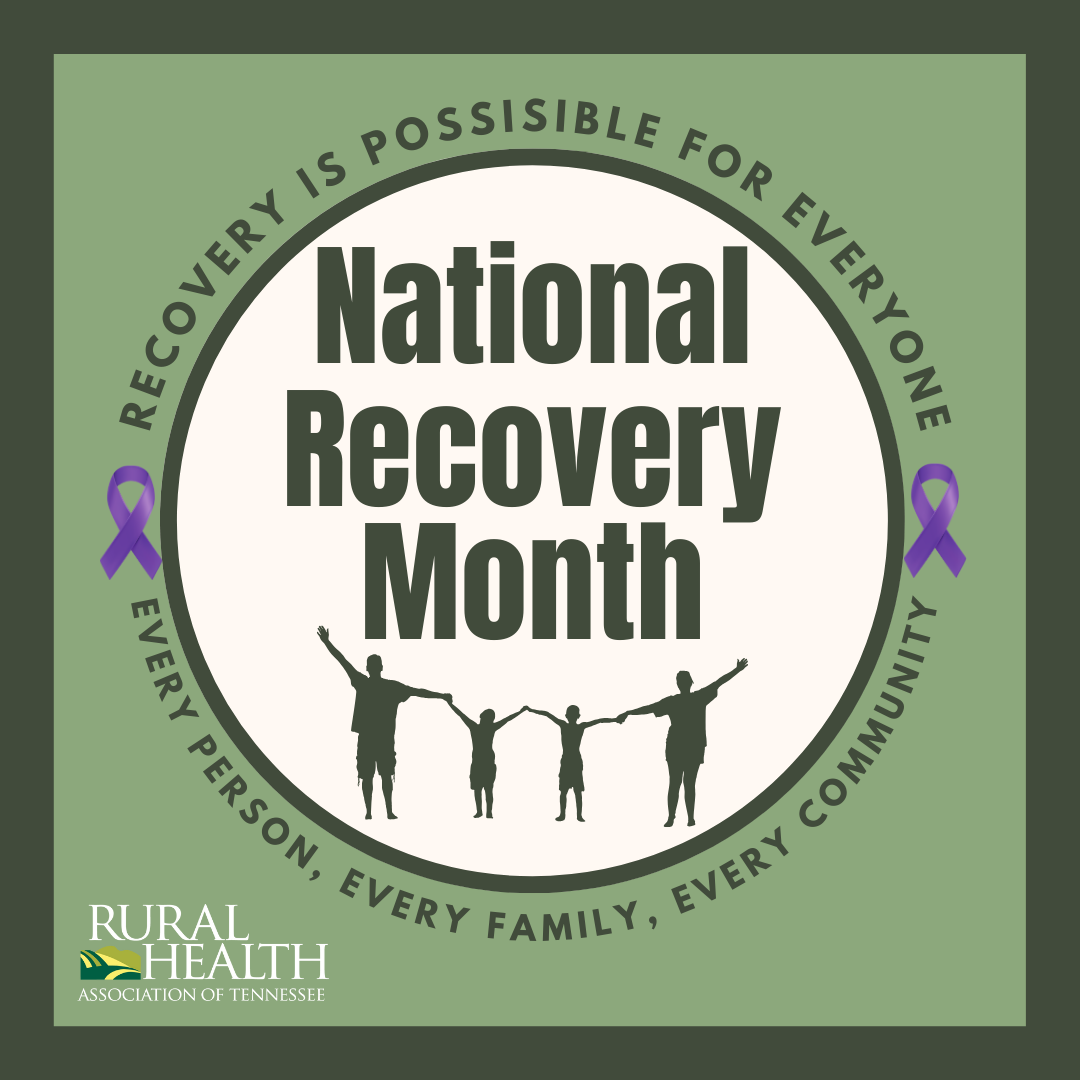 National Recovery Month aims to educate Americans that substance use treatment and mental health services can enable those with a mental and/or substance use disorder to live a healthy and rewarding life.
National Recovery Month aims to educate Americans that substance use treatment and mental health services can enable those with a mental and/or substance use disorder to live a healthy and rewarding life.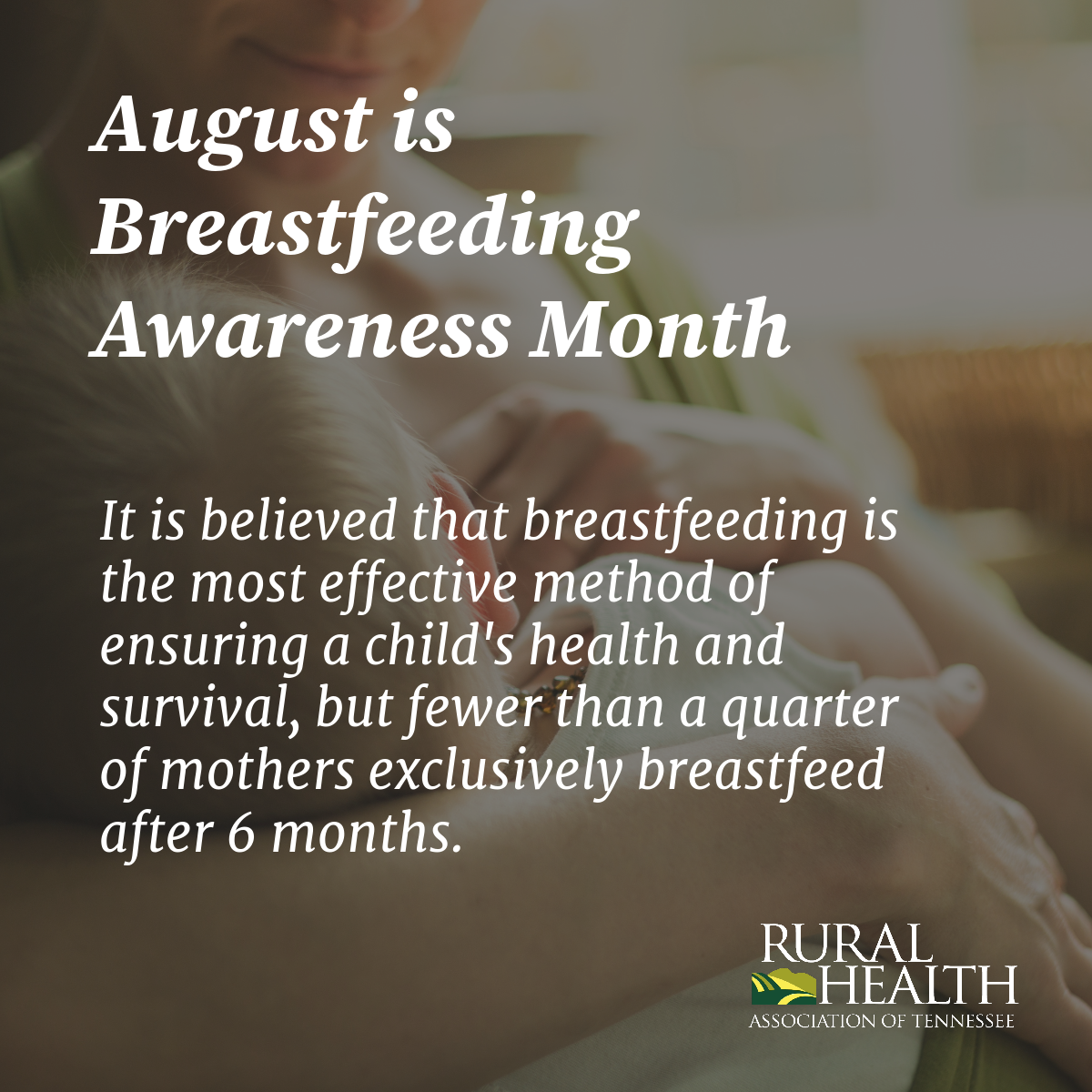
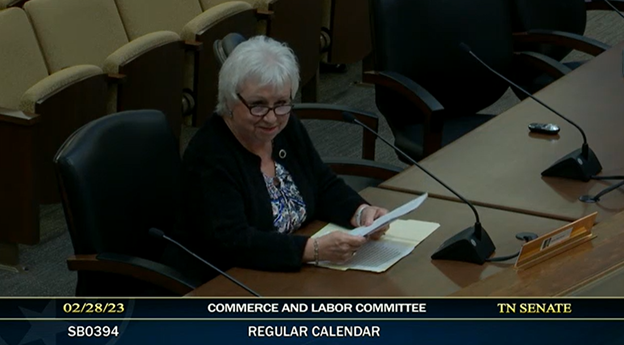 the Tennessee Senate’s Commerce and Labor Committee in support of Senate Bill 394/HB 738 that would establish a recognized Doula certification.
the Tennessee Senate’s Commerce and Labor Committee in support of Senate Bill 394/HB 738 that would establish a recognized Doula certification.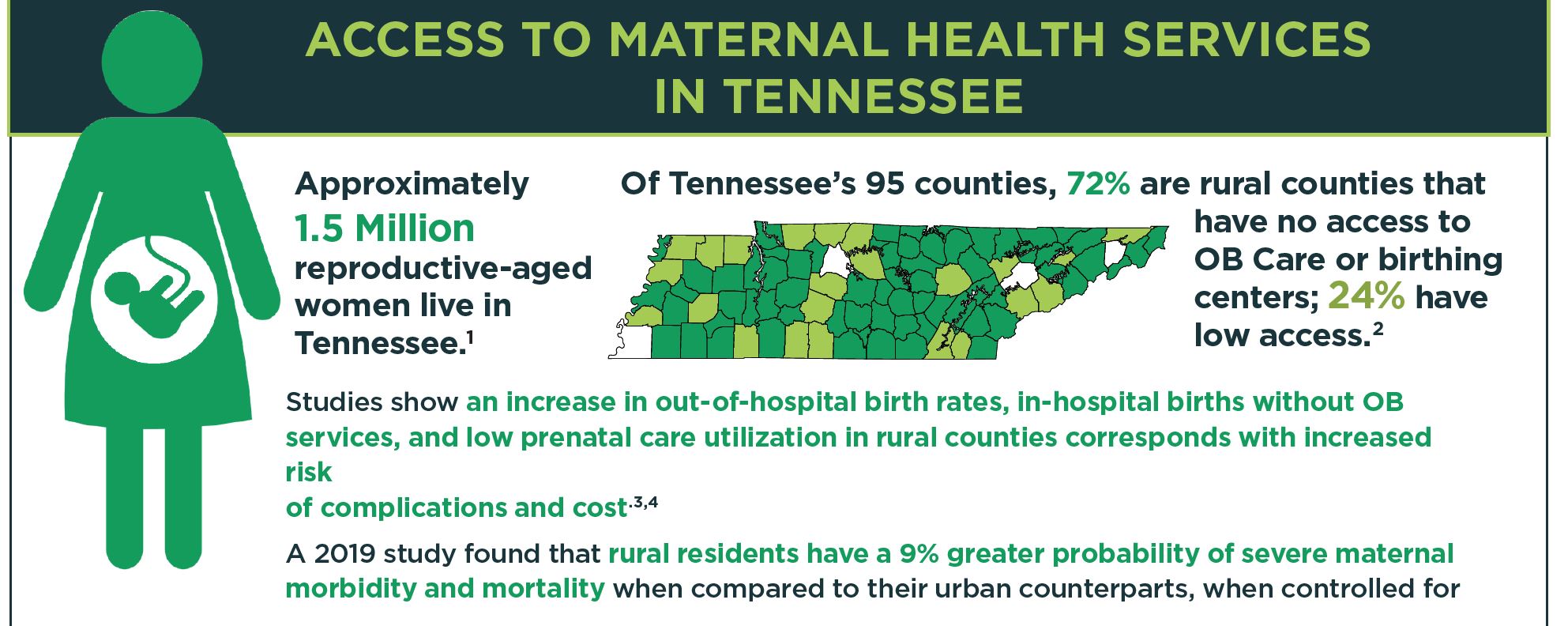 policies that prevent teenage pregnancy, provides case management services to pregnant women, and advances professional knowledge of providers.
policies that prevent teenage pregnancy, provides case management services to pregnant women, and advances professional knowledge of providers.